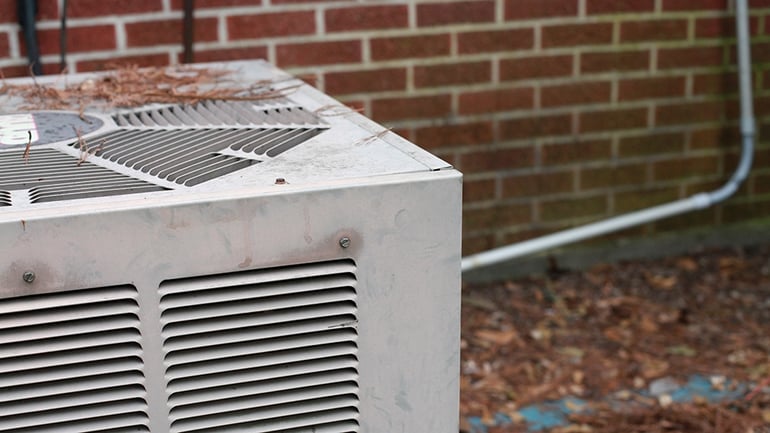
Is your air conditioning unit rattling? Does it turn on without circulating cool air? We've been there. Warner Service breaks down all of the air conditioning problems we could think of:
It’s not receiving power. The unit was unplugged, or there's a defective breaker or burned/disconnected wire.
The unit’s isolation padding is worn. Isolation padding absorbs motion noise produced by the internal parts, especially the fan. These pads wear over time and begin to crumble and break, increasing the noise level of your air conditioning unit.
Refrigerant lines are installed too tightly. An HVAC technician can adjust the unit to resolve the issue.
There’s loose hardware. If you hear rattling, a piece of motor system is loose.
Your air conditioner’s motor is failing. Call a professional before any disconnection occurs or further damage is done.
Debris are in the compressor fan. If a sudden loud rattle occurs, a small piece of debris is in the outdoor air conditioner’s compressor fan.
Your air ducts are leaking. This is the biggest waste of energy because it exhausts cool air and brings debris into your home.
Your evaporator or condenser is dirty. If it shuts off repeatedly and/or inadequately cools your home, the evaporator is dirty.
The weather is too hot. Your unit can’t function when the weather is more than 100 degrees Fahrenheit. On those days, you won't be able to get to 62 degrees Fahrenheit in your home no matter how hard you try.
There’s a faulty part. Whether it’s the motor, transformer, or capacitor, parts of your unit are on their final days.
It's just old. Even the best A/C units last between 7 to 10 years.
The wires have been chewed through. Critters use an outdoor unit’s low-voltage wires for snack, which means your air conditioner has no circuit.
The circuit breaker tripped. This is a common occurrence after a power surge from a thunderstorm. Turn the circuit breaker back on to get the unit running again.
The air filter is clogged. Replace the air filter twice monthly to avoid unclean air circulating around your home. Clogged filters reduce airflow over the evaporator coil, causing the unit to ice up or shut down and go into lockout mode.
Programmable thermostats are off. Set your programmable thermostat to “cool” then adjust the temperature to at least 5 degrees Fahrenheit below the indoor temperature. This helps your air conditioner run at an optimal level.
Your A/C’s outside fan or thermal expansion valve (TXV) stopped working. The former piece is responsible for the flow between outside air and your home while the TXV acts as needle that allows refrigerant to pass. If neither part is moving, neither is the flow of your A/C.
Your air conditioning has dirty coils. A/C units suck heat out of the air in order to cool it. Dirty coils bring bacteria into your home, and build slime, which can’t absorb heat.
The condensate drain is obstructed. Algae and other gunk can clog the condensate drain line, creating an overflow of water from the cold evaporator coil that leaks into your unit. Most drain float switches turn on to prevent water damage.
Your garden is in the way. Extensive vegetation, grass, leaves, and other natural debris get sucked into A/C vents. This can cause damage to the capacitor, which means the air conditioning won’t turn on.
Your air conditioner isn’t the right size. You need the right size unit for your home because incorrectly sized units could cause inadequate home cooling.
If you suspect that your unit has any of these problems, please schedule a service appointment with a Warner Service tech by clicking below:


